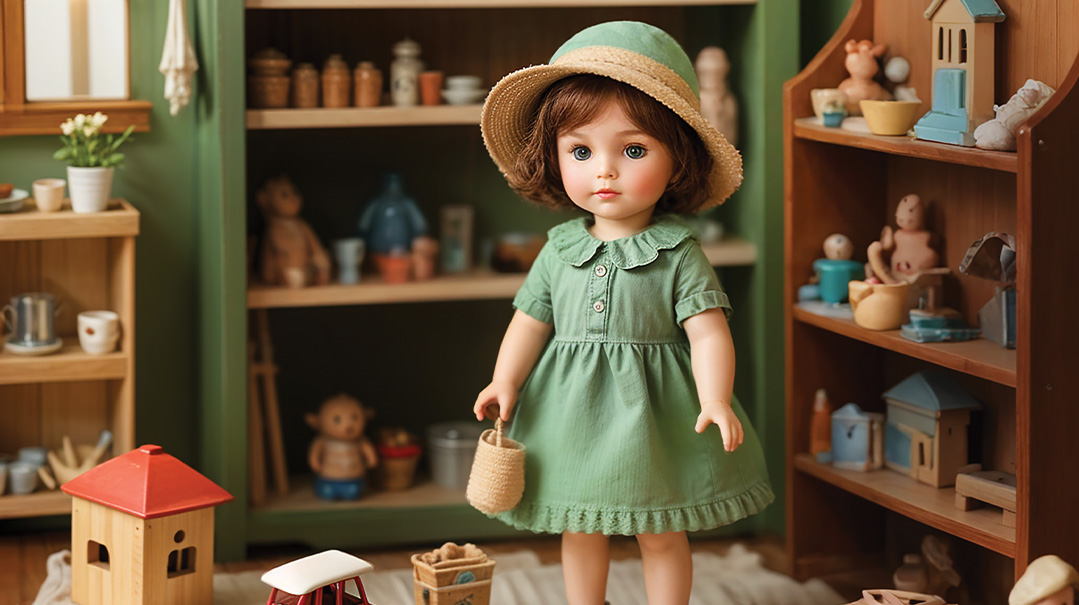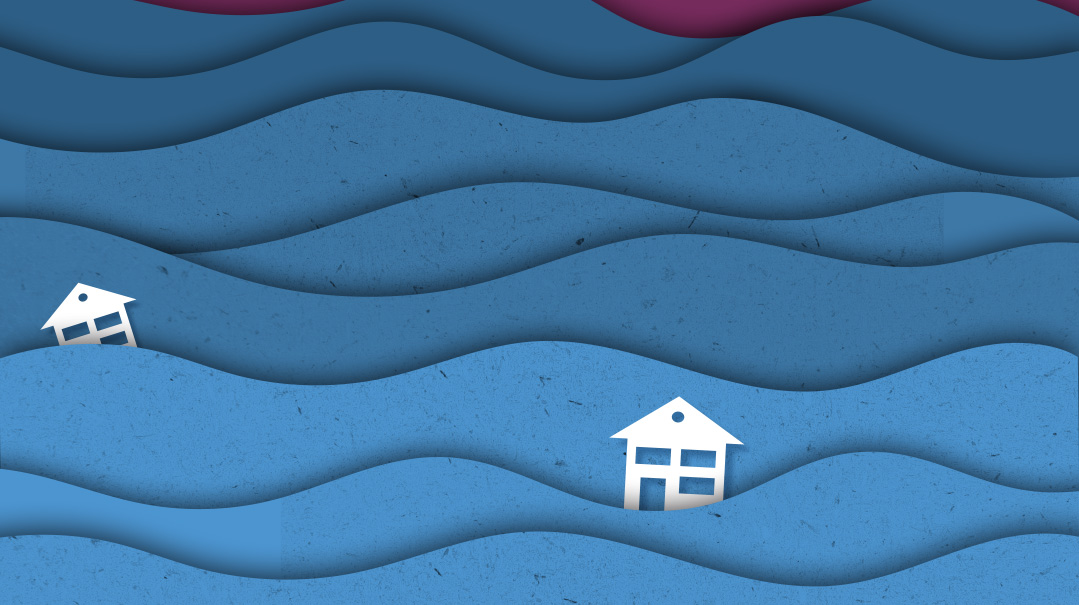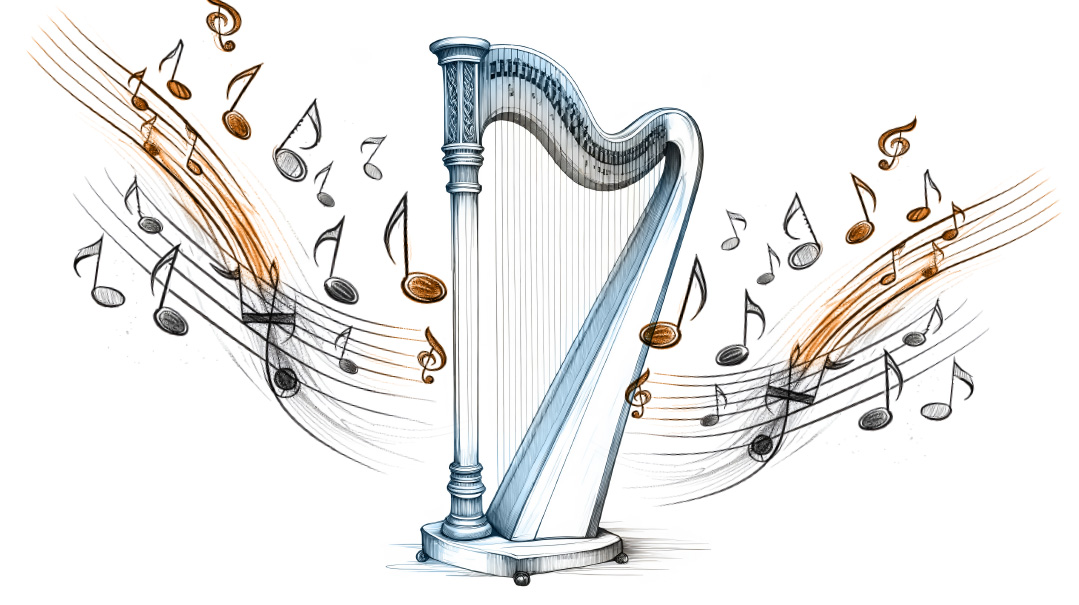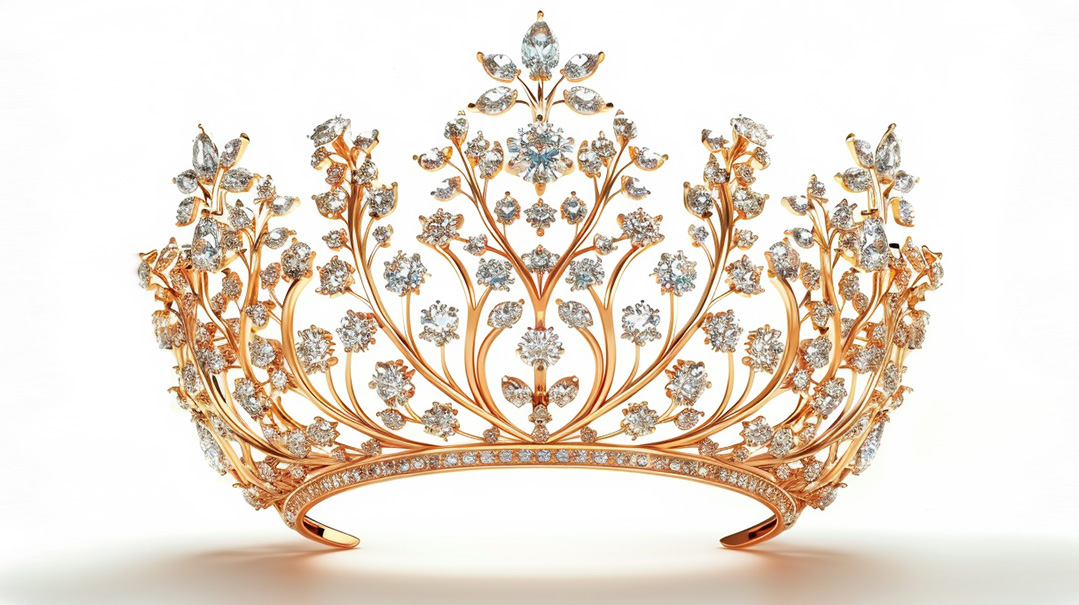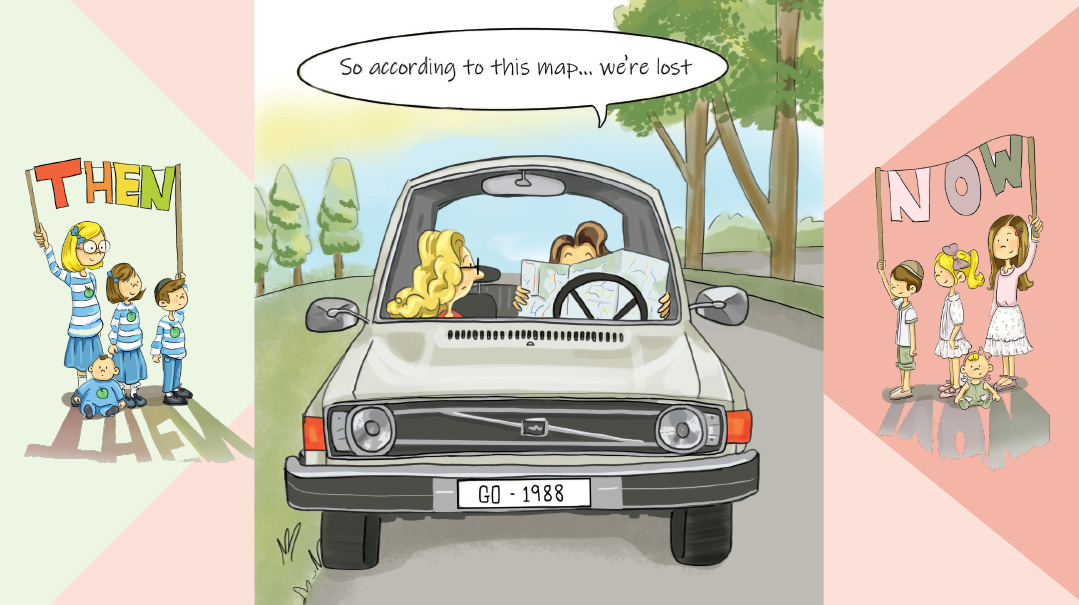A Tribute to My Mother
| September 26, 2023Five prominent personalities pay loving tribute to the strength and self-sacrifice of their mothers

Rebbetzin Chava Kuperman
“Until the age of ten and a half, I grew up in the toxic environment of the USSR. In a society that repressed all religion, my parents gave us a rich and complete Torah upbringing. In a terribly stressful environment, they also nurtured our psyche and our emotional health.
“I remember from my childhood how my mother envisioned our future and worked to ensure our emotional health remained intact. For example, she made sure we didn’t feel deprived. Our economic situation was terrible and there was nothing to do about it. My mother couldn’t work, because she didn’t want to send us children to Soviet kindergarten or preschool. My father worked, of course, but because he took off for Shabbos, his income was low. But even though we had so little, my mother bought cheap food so she could serve us everything generously and we’d feel things were plentiful.
“One of my mother’s biggest fears was that we children would ask for chometz on Pesach, because our diet and our means were both so limited, and obviously chometz was all around us; no one else in our environment was keeping Pesach. She combated this by making the best food she could manage on Pesach, ensuring we were extra well-fed with delicious meals.
“My parents had to weigh the risks of sending me to school. If the Russian government found children unregistered in school, they’d punish the parents very harshly. But in school, the teachers could easily figure out that I wasn’t writing on Shabbos, and the family would be accused of religious crimes.
“They decided to send me to school because in Russia, education was important, and my mother figured that if a child doesn’t go to school, his language and knowledge will be limited, and he’ll feel inferior among others in society. She didn’t want us to ever feel ‘less than’ others, embarrassed and different, because it’s easier to stand up for your principles and live a frum life with self-confidence.
“We were different. We were being raised totally differently from every other kid growing up around us, but my parents realized we needed to grow up with pride, not inferiority. We were raised to understand that a religious Jew is higher than others in every single respect.
“School started at age seven, but my mother only sent me when I was eight. In this way, I’d be a year older than the other children, I’d feel older and smarter, and be able to stand up to peer pressure. She explained to me how to find my own ways to keep Shabbos, how to make brachos on my food unobtrusively, and how to find a place to hide myself to daven. (I couldn’t daven Shacharis before I left to school in the winter, since it wasn’t light enough.)
“My mother’s wisdom in the foundations she laid built an inner world of appreciation for Torah and Yiddishkeit for me and my siblings that was strong enough to withstand all the peer pressure of our classmates who were eager communist youth party members, and all the insidious messaging and manipulation of the Soviet state.”
Rebbetzin Chava Kuperman is a daughter of Rav Yitzchok Zilber ztz”l, who was known as the Father of Russian Jewry. She is also a beloved Torah teacher, kiruv personality herself, and author of the book "To Remain a Jew."
Reb Aharon Margalit
“MY earliest memory, as a child confined to a bed in the San Simon hospital for four and a half years, is of my lonely cry, ‘M-o-o-m-yy, M-o-mmy!’ I cried when my mother left after her weekly visit.
“She’d begin her journey to visit me by donkey cart before sunrise, and would arrive home after nightfall, spending an entire day traveling just to sit by my side for one and a half hours. When she left me alone for another week, I cried bitterly.
“On other days, whenever the loneliness and pain were too much to bear, salty tears drenched my face, and I’d cry, ‘M-m-om-m-yy, Mm-o-mmy!’
“I wasn’t the only child so devastated by polio in those years. But I was the only child whose mother refused to accept the doctors’ verdict of, ‘There’s nothing to do, it’s a matter of time until the worst happens.’
“They said it was a pity to place me on the iron lung, as I wouldn’t last long, but my mother refused to give up hope. Running to the home of the tzaddik Rav Aharon of Belz, she implored for my life, and when I lived, she fought for the recovery of every atrophied muscle and faculty.
“Years later, I asked my mother how she had the courage to stubbornly insist that the holy tzaddik promise my recovery, when he’d protested that he was no angel.
“Her reply: ‘Courage? I was there as your mother!’
“In her eyes, the responsibilities of motherhood knew no bounds. Had my mother not fought the doctors, I may have been a cripple in a sanatorium till this day. Before my release from the hospital, she left our family and the land they farmed for a living and moved into San Simon for two weeks to learn how to take care of me. She studied physiotherapy, brought me home, and rehabilitated me with her own hands. I screamed with pain and begged her to desist, but my mother’s strength won, and the torturous daily exercises and stretches and therapies achieved their goals. Later, she put her physiotherapy skills to use to help dozens of other sick children.
“My mother was a woman of strength and principles, but mostly, a woman of action. She was ever-active, demanding of herself. When my life story was publicized through my book, one of Eretz Yisrael’s most prominent roshei yeshivah called me up. ‘Reb Aharon, I just read your book. Please, I want to meet your mother, the tzadeikes. Please tell me a time when you will be there and I can visit.’ He wasn’t the only one who came to see her. In her later years, she was recognized as a paragon of chesed, who needed so little for herself and gave her all for others.
“I owe her so much. The connection between mother and child is timeless, so that till today, I’m sometimes overwhelmed by longing for her, and occasionally, I cry, like little Ahrele lying almost paralyzed under his blankets, longing for his mother’s voice and touch. ‘Mm-o-m-yy, Mm-o-mmy!’ ”
Reb Aharon Margalit is the author of the bestselling book As Long as I Live, an autobiography detailing his courageous journey coping with numerous life challenges, and a popular speaker.
Rebbetzin Malka David
“MY
mother grew up in Vilna, where her father, Rav Aharon Berek a”h, was the private secretary of the gadol hador, Rav Chaim Ozer Grodzinsky ztz”l, and of the Vaad Hayeshivos. It’s very likely that you haven’t heard the name Berek because no one in the family survived the war, besides my mother.
“My mother’s caring for others knew no bounds. Her koach was that she felt obligated to help any Yid who needed her. There was no such thing as ‘I can’t,’ if another Yid needed something.
“My father had come to Vilna with the Kletzker Yeshivah, and my parents joined the Mirrer Yeshivah on their flight to Kobe and then Shanghai, where I was born in 1943. Shanghai was a safe haven, but it was also crowded, hot, and unsanitary, with conditions conducive to illness. I became ill with scarlet fever, from which I recovered when treated with the newly discovered penicillin which the American military had brought to China, just in time. One young lady recovered from tuberculosis with this penicillin, but she couldn’t get permission to emigrate to America, since the illness was on her records. My mother gave away her own papers to this girl.
“On the boat from Shanghai to San Francisco, my parents smuggled in another baby in addition to my baby brother. My mother was unafraid; since a Yid needed this favor, she did it unquestioningly. On arrival my mother had to go to Canada to reapply for entry papers, since she’d given her own papers away.
“My parents came with nothing, and settled in Seagate in 1946. Since my father had been close to Rav Shach ztz”l back in Lithuania, my mother was concerned about Rav Shach’s suffering with the food shortages in Eretz Yisrael then. They literally had nothing to eat, so she packed packages, cans of beans and other food, and schlepped it to the post office to send to Bnei Brak. I remember going with her on the bus to Coney Island to bring those boxes, and I still have the small silver becher that Rav Shach sent in appreciation, years later.
“I grew up very upset that we didn’t live in Williamsburg, Washington Heights, or the Bronx, where the frum people lived, but even though I grew up out of the area and with no grandparents, cousins, or aunts, my mother ensured I didn’t grow up nebachdig. Her close friends Rebbetzin Bender, Rebbetzin Wachtfogel, and Rebbetzin Hellman were my tantes, and I would be invited to the Bender home to spend Shabbos. Somehow in the summers, my mother scraped together or borrowed money to send me to Camp Bais Yaakov.
“My mother could never go to shul for Yizkor, because her emotions were so strong — she just wept and wept at home, but she didn’t focus on that grief. She was a friendly, warm person, and endlessly devoted to my father.
“It wasn’t easy to grow up with a mother who couldn’t understand the concept of being limited and not being able to help another. My mother was unstoppable. She did and did and did. It was a kind of kiruv home, an open house. My father’s talmidim — he was rosh yeshivah of RJJ, on the Lower East Side — were always invited and became like sons to my parents, as my mother helped them with anything they might need. On Succos, I was given an extra set of arba minim and sent to knock on doors to offer people the mitzvah. On Purim, my mother sent almost 100 mishloach manos packages to Jewish people in Seagate, although they didn’t keep Shabbos. One Seder night, when a family of our regulars didn’t show up, I was sent to walk 20 blocks to their home to bring them. That was the kind of chinuch I received. That was my mother’s personal uniqueness which accompanied her all her life.”
Rebbetzin David is the wife of member of the Moetzes Gedolei HaTorah, Rabbi Hillel David shlita, daughter of Rabbi Mendel Kravitz ztz”l, rosh yeshivah of RJJ, and a school principal and teacher.
Rabbi Fischel Schachter shlita:
“I was born after my parents were married for 12 years, and I’m a ben yachid — no brothers and no sisters. My mother a”h was an incredible person who was careful that the immense challenges she’d faced didn’t translate into pressure on me.
“My mother was born in 1924 and was part of a large family in Bendin, Poland. She was a teenager when the German tormentors bayed for Jewish blood, and her family was lucky enough to have a bunker to hide in. But there were two catches: first, the bunker had to be sealed from the outside, second, they needed to leave it to forage for food. My mother was the one who stayed outside in order to close the top of the bunker on her family. Her own hiding place was behind a piece of furniture, in the room where the entrance to the bunker was concealed.
“One day, her mother went out to look for food for the family’s survival, and she didn’t return. Just a few days after that, tragically, the entire bunker was discovered by the Nazis. I believe my mother saw this happen, but because she was the one left outside, they didn’t find her, and she survived the raid. She had one brother left, a Gerrer chassid who was among the spiritually defiant groups of chassidim who refused to shave off their beards and peyos, even in the Warsaw ghetto, and who continued to sit and learn Torah in secret groups at risk to their life.
“My mother had fought with this brother day and night before the war, she told us, but during those years they were close, and she was moser nefesh to help him hide. Via her brother, my mother informed these special groups of young men about German raids, helping them evade capture and keep up their learning commitments and their bond with each other. But then her brother was murdered, too, and she alone remained alive.
“After liberation, my mother came to America. She was met at Ellis Island by her second cousin, who had a well-established farm in New Jersey and was happy to take her in. She looked at this man and his family, and she realized that if she went with them, nothing would be left of her Yiddishkeit. She didn’t know a soul in the United States and couldn’t speak English, but she turned them down and decided to make her own way. This choice was the biggest nisayon of her life, she told us.
“Instead of moving in with her cousins, she somehow found her way to Williamsburg, as a homeless, penniless refugee, who had to work hard and pay her way. In the early days, she slept on the floor, but slowly things improved, and then baruch Hashem, she married my father.
“For 12 years after their marriage, they davened and waited for children. My mother had no close family at all; my father had also been left with very few relatives. There was no Bonei Olam and no ATIME to offer support or help. My mother went to a doctor on Park Avenue, and at one appointment, he told her to forget her dreams. ‘There is nothing else to do, Mrs. Schachter. You cannot have a child,’ he said.
“At that point her situation hit her so hard, she felt that she had nothing to live for. She got on the Madison Avenue bus and decided she didn’t want to get off, that she couldn’t get off. She was up against the wall, at the end of everything. The day eventually ended, and the bus driver informed her that she needed to get off the bus, because he was done for the day and was parking the bus.
“ ‘I have nothing to live for,’ my mother responded to him.
“ ‘Ma’am, I’ve had a hard day. Whatever your problem is, it’s not going to get better if you sleep in the bus garage, so get off the bus and go on with your life.’
“The driver’s brusque words seemed to my mother like a push from Above. She felt she was being pulled out of her yiush, being told to move on, to find the courage to go forward with simchas hachayim and leave things up to Hashem.
“A year after that day of despair and clarity, I was born.
“My mother waited by the window each day for me to come home from yeshivah, but I actually never saw her there because, she told a neighbor, she made sure to disappear when she saw me coming. That was her effort to save me from the weight and the expectations that came with my position as her ben yachid.
“With the help of Hashem, after all she went through, my mother saw nachas from her grandchildren, and great-grandchildren, too.”
A rebbi in Yeshiva Torah Vodaath in Brooklyn, Rabbi Fischel Schachter is a highly acclaimed and much-loved scholar, international lecturer, storyteller, and author.
Rabbi Yissocher Frand shlita:
“A
ll of us have hundreds of memories of our mothers and what they did for us. But if I had to pick one incident that stands out in my mind, it’s when my mother saw me off from the train station when I went to learn in Yeshivas Ner Yisroel.
“I was born and raised in Seattle, Washington, and when I finished Seattle Hebrew Day School, I decided I wanted to go away to yeshivah. This wasn’t common in those days, considering that sending a child to yeshivah meant sending him thousands of miles away. There was only one other boy in my class who did that.
“I’d gotten the idea of going to yeshivah from some of the older boys in Seattle who had gone to yeshivah after high school, although those boys were a minority of a minority, and I was greatly influenced toward making the decision by my rebbeim. My parents agreed to send me away because that is what I really wanted, and they were very good parents.
“Air travel was expensive in those days, so on one trip back to Ner Yisroel, we decided I should go by train from Seattle to Baltimore, a trip of about 72 hours. My mother waited on the platform to wave goodbye. I’ll never forget the anguish on her face and how she broke down crying. My mother wasn’t an emotionally demonstrative person, but she obviously couldn’t hide her emotions at this parting.
“My mother had no formal Jewish education whatsoever. She was born in Satu-Mare, Hungary, more commonly known to us as Satmar, at the beginning of the 20th century. Her family was not chassidish, though, and I don’t know if Jewish education was even available to girls in that time and place. She married my father, who was from Frankfurt, and moved there after their marriage. In 1940, my father, who had come to the United States a year before, got my mother and my brother out of Europe. They settled in Seattle, where my mother was active in the Seattle Hebrew Day School, the shul, and various tzedakah organizations. She really had no concept of a young boy going off to yeshivah — nor did most people in Seattle in the early 1960s.
“As for me, alone on the train that was taking me away from my parents and home, I was going to be a brave 16-year-old and not cry. And I didn’t — until after several hours, when the train crossed into Idaho. Then I broke down and cried myself to sleep. I don’t think I’ll ever forget the look on my mother’s face as I left her. I am sure she’s been justly rewarded for her mesirus nefesh in Gan Eden.”
Rabbi Yissocher Frand shlita is a rosh yeshivah at Yeshivas Ner Yisroel of Baltimore and an internationally popular speaker and author.
(Originally featured in Family First, Issue 862)
Oops! We could not locate your form.

